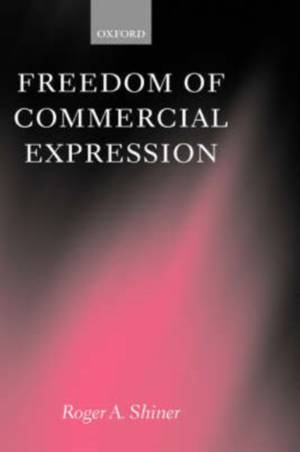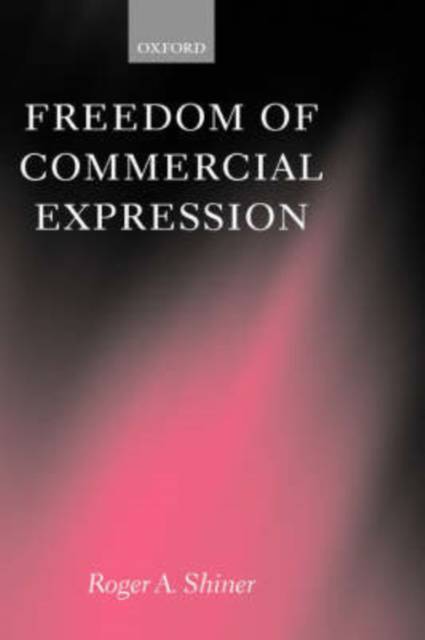
- Retrait gratuit dans votre magasin Club
- 7.000.000 titres dans notre catalogue
- Payer en toute sécurité
- Toujours un magasin près de chez vous
- Retrait gratuit dans votre magasin Club
- 7.000.0000 titres dans notre catalogue
- Payer en toute sécurité
- Toujours un magasin près de chez vous
Description
The U.S. Supreme Court extended constitutional protection to commercial expression or speech in 1976. The European Court of Human Rights and the Supreme Court of Canada subsequently did likewise. Historically, however, as Chief Justice Rehnquist memorably remarked in dissenting from the 1976 decision, freedom of expression relates to public decision-making as to political, social, and other public issues, rather than the decision of a particular individual as to whether to purchase one or another kind of shampoo. For all that, courts are now granting constitutional protection to the commercial advertising of organizations such as tobacco manufacturers, breweries, and discount liquor stores. In this book, Roger Shiner subjects to critical examination the history of and reasoning behind the extension to commercial expression of the principles of freedom of expression. He examines the institutional history of freedom of commercial expression as a constitutional doctrine, and argues that the history is one of ad hoc, not logical, development. In examining the arguments used in support of freedom of commercial expression, he shows that even from within the borders of liberal democratic theory, constitutional protection for commercial expression is not philosophically justified. Commercial corporations cannot possess an original autonomy right to free expression. Moreover, the claim that there is a hearers' right to receive commercial expression which advertisers may borrow is invalid. Freedom of commercial expression does not fit the best available models for hearers' rights. Regulation of commercial expression is not paternalistic. The free flow of commercial information is not automatically a good, and in any case commercial expression rarely in fact involves information.
Spécifications
Parties prenantes
- Auteur(s) :
- Editeur:
Contenu
- Nombre de pages :
- 380
- Langue:
- Anglais
- Collection :
Caractéristiques
- EAN:
- 9780198262619
- Date de parution :
- 29-01-04
- Format:
- Livre relié
- Format numérique:
- Genaaid
- Dimensions :
- 156 mm x 234 mm
- Poids :
- 707 g

Les avis
Nous publions uniquement les avis qui respectent les conditions requises. Consultez nos conditions pour les avis.






